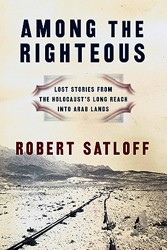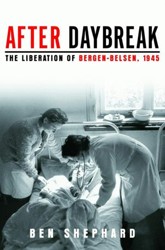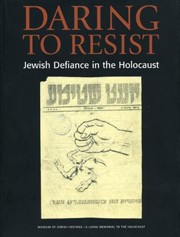Journalist Michael Goldfarb, who is Senior Correspondent of Inside Out, the award-winning public radio documentary program, has written a history chronicling the response of the Jewish community to its emancipation on the eve of the French Revolution in 1789. Many scholarly tomes have dealt with this subject, but few written for the general public have the clarity, insight, and command of the subject matter as this work of history.
Goldfarb attributes the ideas leading to Jewish emancipation to the philosophical works of Spinoza. He then examines the manner in which supporters and opponents of emancipation presented their arguments, a debate that would continue to resonate among opponents of emancipation well into the beginning of the 20th century. Along the way, Goldfarb provides vignettes of many of the Jewish intellectuals who not only benefitted from emancipation but also helped shape modern intellectual thought. Although readers will be familiar with such prominent Jews as Henrich Heine, Ludwig Bourne, Karl Marx, Moses Hess, among the many assimilated or baptized Jews discussed in the volume, Goldfarb also introduces lesser known pioneers of emancipation, such as Zalkind Hourwitz. If Hourwitz’s name does not resonate with the reader, all the more reason to peruse Goldfarb’s work and introduce oneself to a neglected figure in modern Jewish history.
In his riveting account of Jewish emancipation and its consequences for the Jews of Europe, the author states that in writing this book, he sought to answer two simple questions: “Why was there this enormous explosion of Jewish achievement, particularly in the areas of culture and intellectual life? And, what price? What was the price paid by the Jewish community and European society for the process of integrating?” Goldfarb discovers that emancipation resulted in a mixed response, mostly a negative one. In comparing the key differences between emancipation in France and Germany, Goldfarb writes that in France, Jews were encouraged by law to think of themselves as Frenchmen, whereas in Germany, Jews were never allowed to think of themselves as anything other than Jews, even after gaining civil rights. This was a lesson certainly learned by Jews such as Heine and Gustave Mahler who found, once they converted to Christianity, that it made no difference — the response of many non-Jews was “once a Jew, always a Jew.”





